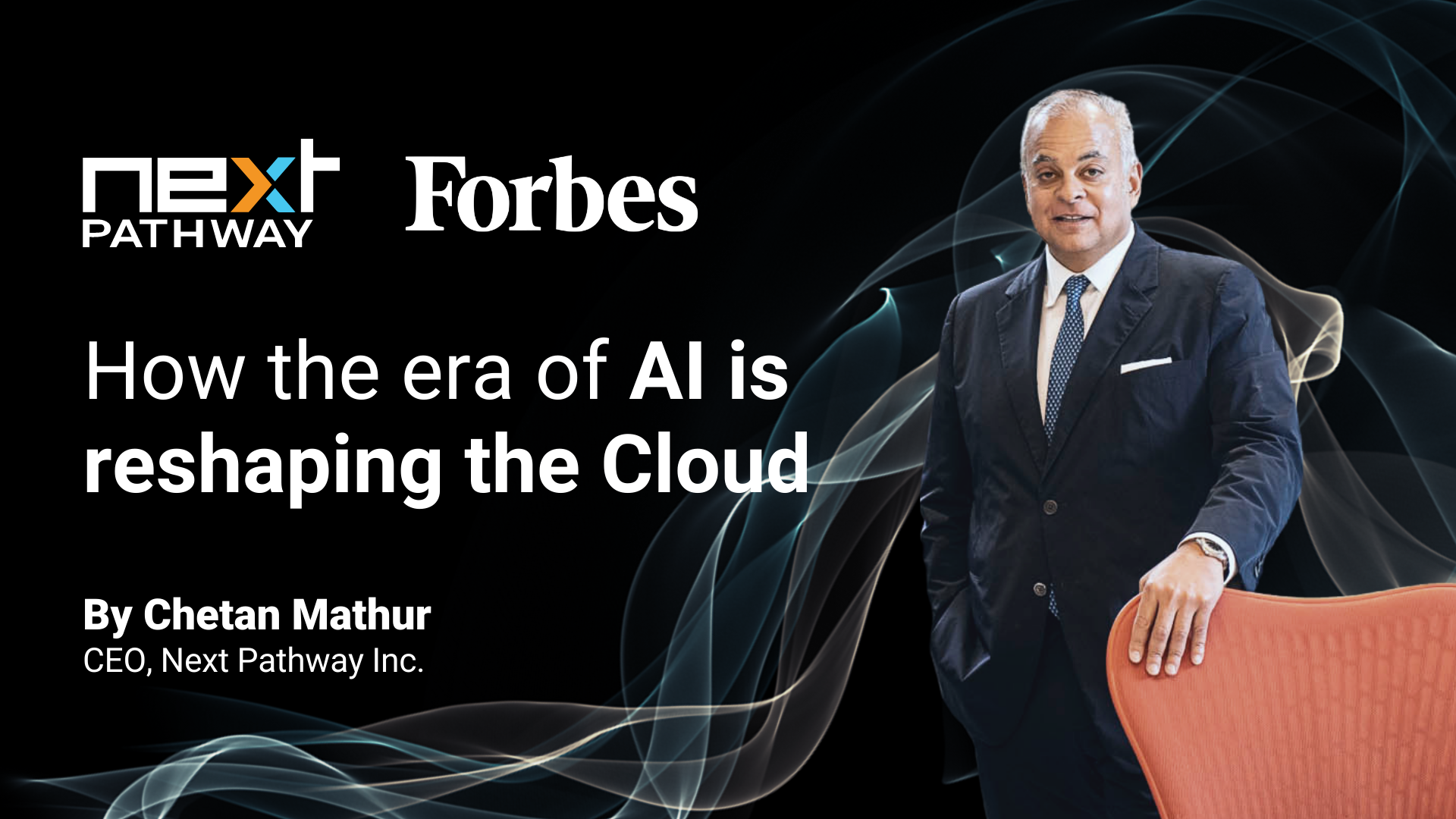
As I look back over the last five years, I see a few distinct waves regarding moving to the cloud. The first wave involved the early movers. These companies were enticed by the operational efficiencies of cloud computing and were innovators in digital transformation. These early movers were rewarded for being visionaries when the pandemic hit. Covid-19 spurred the next wave as companies raced to establish cloud platforms to safeguard their business and move customers to an online experience.
The latest wave is prompted by artificial intelligence (AI) as data is being put at the forefront, driving key business decisions. There are numerous examples of how enterprises are redesigning and reimagining their current business with the lens of AI. Businesses are using AI today to identify manual patterns that can be automated, analyzing trends with a high degree of prediction for determining future events, managing inventory and defining optimal prices for their products and services. This is having a tremendous impact on our daily lives, as not only is the consumer experience more enjoyable, but our overall health is likely to significantly improve as medicine is more personalized and precise.
It’s been proven over time that the business use case drives technology innovation. This is true for cloud computing, as it is the only platform that provides the computing power, scalability and storage capabilities essential for AI. These crucial requirements are driving innovation in the cloud.
Leading cloud vendors are publishing almost daily press releases on how they are improving and enhancing their products to ensure they can offer the best platform to enable AI. Microsoft has been advancing its entire product line, including using natural language prompts, getting AI-generated responses based on data and enhancing collaboration across team members. It is not surprising that Microsoft’s announcement of its partnership with OpenAI has inspired competitive innovation. In response, Google announced its Search Generative Experience, or SGE, which aims to deliver more meaningful search results to users. Even NVIDIA recently announced NVIDIA DGX Cloud, which is marketed as the "world’s first AI supercomputer in the cloud."
Cloud providers are modifying their platforms to be more purpose-built and accessible; these improvements are democratizing data science and AI so that everyone in an organization can use data to their advantage. Microsoft recently announced Microsoft Fabric as the “AI-powered platform” to reshape how enterprises access, manage and act on data. This messaging is intentional, as enterprises are buying based on the unique demands of AI in their respective businesses.
Each cloud provider is positioning their platforms as being designed for machine learning and AI. Despite these platform improvements and compelling business drivers, many companies have yet to move legacy workloads to the cloud. There is no shortage of desire. The blocker lies in the inherent complexity of these legacy systems. Cloud providers that can make it easy to move legacy data and AI applications (code and data), which is critical to enabling AI, are expected to win in the long run. When cloud providers offer migration solutions to customers, I predict another (large) wave will ensue.
Read the full article on Forbes here: How The Era Of AI Is Reshaping The Cloud
Next Pathway is the Automated Cloud Migration company. Powered by the SHIFT Cloud, Next Pathway automates the end-to-end challenges companies experience when migrating applications to the cloud. For more information, please visit nextpathway.com.